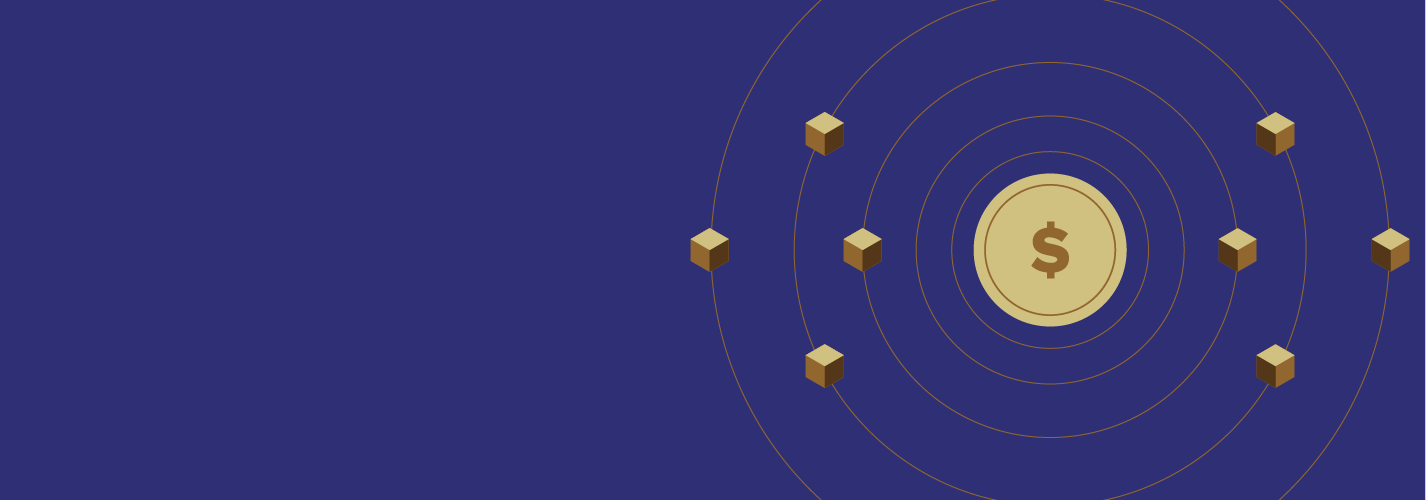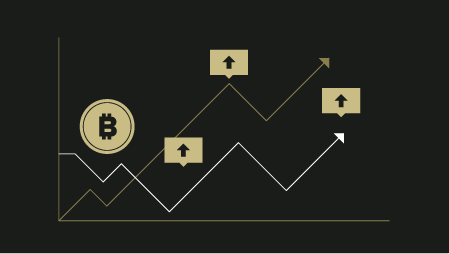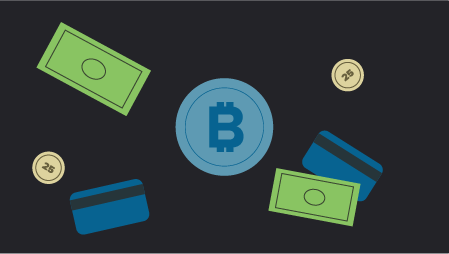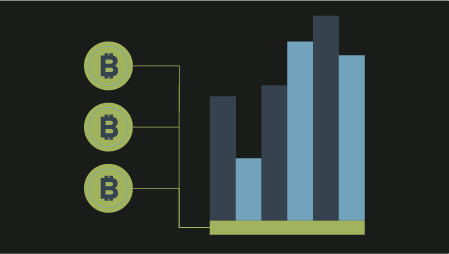“The blockchain is the financial challenge of our time. It is going to change the way that our financial world operates.” – Blythe Masters
The blockchain is one of the most secured networks conceived technology mechanism of trust. With bitcoin, it has overcome the initial infancy phase to impact all sorts of financial transactions. It has a widespread usage of cryptocurrencies. Also, its technology is now revolutionizing all leading industries.
As per global research on the use of blockchains, the primary beneficiary was the banking & financial sector with 30%. The other primary beneficiaries are the Governments and Insurance with 13% and 12% each.
As per the following words of Fred Ehrsam, the reach of blockchain is going to be tremendous in the future.
“Everything will be tokenized and connected by a blockchain one day.”
The primary advantage of the growing blockchain technology is its adoption by more than two billion unbanked people.
These people living around the world stand to benefit financial inclusion by blockchain. The minimum costs, lower risks, and less verification for transactions make it more optimal than banks.
Healthcare around the globe can be digitalized using blockchain technology. The EHR or the Electronic health records and HIS or the hospital information system is the fast-growing digitalizing techniques in health care.
Blockchain with IoT could make them easily possible and for its fast implementation for making this world a better place.
From smart digitalized contracts in legal and insurance firms to more intelligent metering systems for the energy sector, it is now in all industries.
It enables farmers to get a better price for their products throughout the supply chain and also real-time data for optimal harvest. Its impact on businesses has moved from B2B to B2C with its rapid growth.
What is Blockchain?
In the outset, blockchain gets positioned as an alternative to traditional banking mechanism. It has raised the possibility of a revolution in the world of financial technology and the way the money gets controlled. Nine years since its inception, its growth is phenomenal and holds a great future for the entire world.
Blockchain can be described as a shared, distributed ledger to provide the whole history of an asset by digitally recording and linking transactions together. Any transaction is only added using consensus protocol after properly validating it. It ensures the truthfulness of the transactions, and each record gets encrypted for additional security.
Immutability is one of the core features of blockchain technology. It is because of its decentralization and, available in many ledgers in different locations. It makes even a prudent hacker fail because of the impossibility of hacking thousands of computers to alter blockchain records.
The blockchain is a technology that facilitates trust and truth between trading partners. The ability of blockchain to enable all participants to have access to the same version of the truth brings in the fact of the transaction. Trust is because of the confidence of all transactions to be completed.
How does the Blockchain Work?
Blockchain uses a ledger system that maintains and tracks all transactions. It is not stored on a central server like banks, but to the USP of blockchain or a decentralized system. This ledger file is stored on private computers to perform computations. These individual systems are across the world and allow everyone to see other’s transactions.
There is no need for any security threat by this because of its special mathematical functions and implemented codes. Also, each wallet gets protected with a cryptographic method with a unique and connected distinct pair of both public and private keys. All these features of blockchain technology enable specific functions and advantages.
In addition to all these, Blockchain Can Help You To Secure IoT Data. Therefore, it becomes vital for all of you to become aware of this wonderful innovation.
Benefits of Blockchain
The main features for the benefits of blockchain are as follows
Distributed:
Numerous copies of the ledger get distributed in multiple places. Any new transactions get added to the ledger after getting broadcasted to a brand network of participants. For having security, everyone’s ledger contains identical information by the designed system.
Immutable:
Due to its multiple copies of the ledger, it maintains an accurate history of the transactions. And also it makes it near to impossible of altering or deleting or adding any false information. Also, it entirely avoids any chance of hacking altogether.
5 Benefits of Blockchain
For those who master this game-changing blockchain technology, there are numerous benefits which include:
1. Security:
For traditional people, the first and foremost concern would be the security of their hard-earned money. Any way for a new concept like blockchain should provide with utmost safety possible.
The following features of blockchain make the best of protection by all standards:
- It has better security than any other record-keeping system as of the date
- Any modifications or updating in the shared documentation of transaction is only possible with consensus on a blockchain network
- The information could get edited only when the majority of the nodes agree to it
- All the approved transactions are encrypted and connected to the previous transaction.
- Any individual or party can have the potential to alter or update the record because of its decentralization.
2. Transparency:
Transparency gives the assurance of anything in this world. Only valid and trusted allow total transparency. Blockchain makes a transparency of transaction histories than any methods or technologies.
It gets done in the following, among other ways:
- Being a distributed ledger, all nodes in the network share a copy of the documentation
- It is easy for everyone to view the data on a blockchain ledger
- Everyone in the network can see all the changes and the updated record
- All the currency exchange information is available to all
3. Efficiency:
Only efficient technology could sustain the test of time.
The following are the ways that blockchain proves its efficiency:
- Human errors and third-party mediation of traditional paperwork gets eliminated
- It streamlines and disciplines the legacy methods to remove the risk of mistakes to make trading efficient and fast
- With only one ledger in use, the need to maintain multiple documents gets avoided
- Everyone accessing the same information gains trust and truth
- Settlements are seamless and effortless without the need of any intermediaries
4. Traceability & Audit Ability:
The recording of goods exchanges forms an audit trail with blockchain to prevent frauds. It enables to track products even in complex supply chains to their origins.
Also, the full journey of the product with all its stops can help to verify the authenticity of the products. With the audit trail, the audit ability of the product for its full life in the blockchain gets recorded.
5. Cost Effective:
Any new technology should be cost-effective to be successful. Blockchain with all its latest and best features reduces costs in useful ways, which include:
- No intermediaries and middlemen save enormous costs for businesses.
- Trust is the primary factor of blockchain it does not need any rules, policies of exchange to save costs
- Documentations and its revisions value gets saved as everyone gets a view of the ledger
Benefits of Blockchain in Other Fields
The blockchain is fast making inroads into many sectors apart from its core functions in banking and financial sectors.
The different areas with its significant contributions include:
Insurance & Legal:
The insurance sector utilizes nearly 12% of the global usage of the blockchain. The smart contract facility of blockchain enables legal and insurance companies to develop a computerized protocol to execute the terms of the contract.
Many leading law firms across the world are now started to utilize blockchain technology for digitalized agreements.
The following are the ways blockchain gets used in insurance and legal firms:
- Blockchain smart contracts automate and streamline for fast, secure, and cheaper agreement and payment processes
- Digital receipts are now worked out by many startups
- Create an audit trail
- Safe customer data
- Collect and store IoT data
- Improve and accelerate the functions of the insurers
- Documentation could be logged and shared through the blockchain with the administrative resources deployed elsewhere
- Instant digital insurance policies without human intervention
- Fast disbursement of insured amounts without any bureaucratic delays
Healthcare:
Healthcare constitutes nearly 8% of blockchain applications and fast improving. It is one sector which needs more of blockchain applications in the future.
With IoT blockchain can Umake wonders in this field to make this world a better place to live. It could be not only on the administrative side but also digitalizing the health sector as a whole.
The following are the benefits of blockchain in healthcare:
- Reduces frauds in healthcare payments by making every participant be part of the overall blockchain
- Authorization of data by multiple people can be digitally signed with blockchain
- Facilitates the EHR & HIS for digitalizing the healthcare sector globally
- Relates to payments and payer contracts and automatically verifies and authorizes information and contractual processes
- Help building a shared infrastructure by connecting users of wellness app, EHRs on the same network
Banks & Blockchain:
Blockchain can solve a lot of issues continually faced by banks and financial organizations nowadays. It could bring changes to everything from payments to online appointment scheduling software.
It provides a high level of security in storing and transforming data at low costs through an open and transparent network infrastructure.
The traditionally centralized, conservative, and restricted banking sector has now started using blockchain technology more than any other institutions.
This decentralization in the banking industry could bring in more guarantees of stability and reliability. The change of the bank’s clearinghouse or centralized ledger to blockchain’s distributed ledger could redefine the banking industry.
Global Banks Testing and Implementing Blockchain Technology:
As per an Accenture analyst report, the world banking sector can save 20 billion dollars by implementing blockchain. Some of the global banks which are exploring the blockchain opportunities and in the process of implementing include:
- The Polish Bank Association’s subordinate – The Credit Data Processing Bureau has recorded nearly 150 million Europeans credit histories.
- Billion Group, a British Fintech company, received 1 million Euro of investments from the European Union last year to create blockchain based solution to process customer data for its Bureau.
- Grupo Santander is one of the pioneers in the implementation of blockchain technology in the global banking industry. It is one of the largest Spanish banking group and one of the leaders in England.
- Also, Santander controlled by Banco Group has deployed One Pay FX payment system running on the blockchain. Using the distributive ledgers of blockchain, its primary purpose is to optimize the payments between Europe and South America.
- Banco Santander to conduct shareholder voting has developed a unique blockchain model to the needs of its significant partners. The partners include JP Morgan Chase, Broadbridge and Northern Trust.
- JP Morgan Chase in the process of studying and implementing blockchain technology has set up Quorum division as a separate enterprise.
- Goldman Sachs has invested in the circle cryptocurrency project to create its cryptocurrency unit. It wants to have its cryptocurrency and be a market leader overshadowing its Wall Street competitors.
- Blockchain association is not only with individual banks but also a group of companies bank associations. Many Government European banks and the Canadian Bank of Montreal are members of the association.
Some other members of the association include:
- CaixaBank of Spain
- UBS of Switzerland
- Commerzbank of Germany
- Erste Group of East Europe
Benefits of Blockchain in Banking Industry
1. Fraud Reduction:
Blockchain technology reduces hacking, DDOS, or Distributed denial of service attacks and all other forms of fraud.
With a reduction in frauds, there is a decrease in the cost of doing business. It increases the saving benefits with a safe & secure financial transaction.
45% of financial intermediaries like money transfers and stock exchange are prone to routine financial crimes.
It is because banking systems around the world are built on a centralized database. This one system access enables hackers to commit frauds by hacking.
Due to multiple copies of the ledger in blockchain transactions, it is hard to hack or even alter or delete transactions. It is because they have to hack or change every copy of the ledger in various locations.
In other words, means they have to hack thousands of computers simultaneously, which is believed to be near to impossible.
Also, it enables banks and others to identify individuals fast and accurate by way of a blockchain-enabled digital ID.
By reducing the vulnerability to cyber attack, it also gets rid of today’s online crimes committed against financial institutions. The way it functions differs from traditional banking, which enables to avoid frauds altogether.
2. Digital Identity:
A digital identity is essential to validate the trillions of transactions in a second in the blockchain. These digital identities are recorded on the blockchain protocol to enable specific things to have the authorization to transact.
In future smart objects can be added to these digital identities, paving the way for IoT. Also, MoIP or Money over Internet Protocol will form a foundation for a perfect payment structure.
It will enable large scale machine to machine commerce. It will enhance the scalability of payment transactions. Hence with IoT in the blockchain digital identity, a significant breakthrough will happen for better financial transactions.
3. Smart Contracts:
Automatic execution of codes stored as lines on a blockchain is called smart contracts. These contracts can get executed when the preset terms and conditions meet together.
Even without an intermediary, all the participants can be sure of the outcome with smart contracts. This way, they can also act as escrow providers between buyers and sellers. In this manner, Blockchain is Transforming the Industry.
Automation of activities reduces cost, complexity, and delays of transactions. It can also monitor when the buyers make a payment, & sellers deliver their end of the deal.
When programmed correctly, they can also handle any challenges posed during transactions. Encrypted smart contracts combined with open banking could lead to quick, automated lending decisions in a bidders marketplace.
4. KYC:
Blockchain has simplified the KYC norms by allowing an organization to access the details of the verification of another organization.
In the process, it saves hundreds of millions of dollars annually spent by financial institutions. Also, by avoiding this constant KYC process, it reduces the administrative costs significantly.
5. Currency Exchange:
The prominent use of blockchain is the transfer of virtual currency, namely Bitcoin. It is because it gets detached from any country or institution. Also, it reduces the risk of inflation and the collapse of currencies.
6. Money Transfer:
Money transfer from one country to another is a cumbersome and expensive process with the banking system. Since it involves billions of dollars annually, global banks are now using blockchain for the transfer process.
Many of them have partnered with Ripple blockchain for RTGS or real-time gross settlement system to facilitate cross border payments.
Blockchain enables money transfer with minimum cost and without verification. It is very easy, convenient with time and cost saving, unlike traditional banking transfers.
An association of the world’s largest bank with R3 is developing a bank to bank global transaction system. Mircosoft’s Azure-based Blockchain is helping it as a Service.
7. Payments:
The payment process is profoundly transformed with the blockchain disruption. Also, it provides banks with higher security at lower costs.
It is not only for payments between organizations and client but also for the bank to bank payments. Even the process with blockchain does not need any intermediaries in the processing system.
- Benefits of Blockchain Payments:
- Reduces the complexity of several networks and intermediaries and with it their costs
- Processing fees get reduced with blockchain compared to banks, and it is getting better with more competitions
- Cheque return charges rub salt to the wound for many merchants. It gets avoided with the blockchain payment process
- Also, the wait for the cheque to be cleared is a more extended period in the banking system, whereas with blockchain it is instantaneous
- Avoids malpractices of online sales with solid blockchain based payments which are quick and irreversible
- It also enhances micropayments with its decentralized public ledger using cryptocurrencies. It enables to record financial transactions without any help from the third party to check and verify. Hence it alleviates the associated cost while sending small payments
- The accounting fraud risk gets avoided along with the reduction of settlement time
8. Clearing & Settlement:
Australian Securities Exchange is aiming to use blockchain to transfer a bulk of its post-trade clearing and settlement. It is because the investment banks have to spend billions of dollars to record loans and securities.
9. Trade Finance:
Trade finance is an essential element of the supply chain, and it is still mostly based on papers. Since the bills of lading, LOCs and others are being sent by fax or post around the world; it is imperative to use blockchain.
It enables easy access to the numerous parties of the same information. It could be a game-changer in digitalizing the entire trade ecosystems.
10. P2P lending:
Peer to peer lending is a natural case for blockchain usage. It is because it does not rely on the centralized authority of the financial institution. Also, it allows the borrower to define the amount, rate of interest, and other parameters.
Blockchain, with its decentralized ledgers, creates parity between borrower and lender and also makes it easy to compare interest rates.
11. Syndicated Loans:
For syndicate loans, it takes nearly three weeks for the bank to settle the transaction. But with blockchain, the ownership of the loan can be quickly known in all systems as early as possible. It enhances the syndicate loans in a big way and also benefits businesses with fast loans.
12. Trading Platforms:
Another area of blockchain to transform stock and security trading platforms could revolutionize the stock markets around the world. NASDAQ and the Australian Securities are some of the few who are in the process of doing it.
13. Transaction Details:
With blockchain’s unique technology for keeping track of transactions, banks can use blockchain for transferring money. This tracking facility could be useful for banks in many ways.
14. Title Details:
Since the ledgers of blockchain are a hard nut to crack, they can make it easier and more efficient to track ownership. Every transfer of ownership, along with their liens and other events go into the ledger. It results in a trustworthy source of information about any property.
15. Financial Inclusion:
Blockchain could enable the two billion unbanked people to have financial inclusion. The low costs, no minimum balance requirements, check return charges, and lack of access have made people seek blockchain.
They can do all the financial transactions with their mobile with blockchain. The App Development Company can take advantage of this fact and develop accurate solution.
Conclusion
Blockchain could potentially save billions of dollars by reducing the banks processing costs. Blockchain means a trust for all is well understood by banks now to make a paradigm shift towards using blockchain technology.
It is fundamentally reshaping the banking industry as per the modern day needs. With Governments like the Dubai Government on the process of utilizing DLT or distributed ledger technology for all its Government systems by 2020, made banks also to follow suit.




